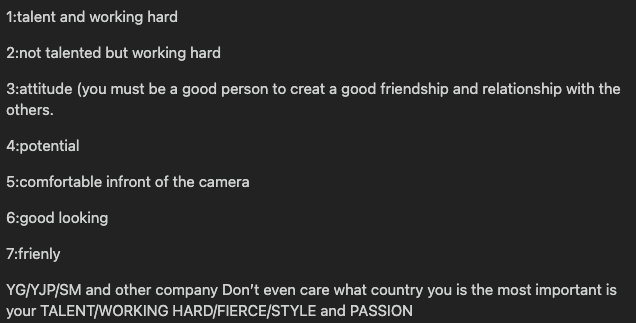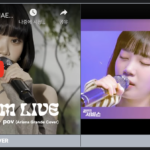Pursuing a Career in K-Pop: Realities for Non-Korean Aspiring Idols
Dreaming of becoming a K-pop star is a common aspiration for many, but the path to success in the industry is far from easy, especially for those who are not of Korean descent. Let’s take a closer look at the challenges and realities faced by non-Korean individuals aspiring to make it big in K-pop.

The Reality Check:
- Ethnicity Matters: Unfortunately, the K-pop industry tends to favor individuals of Korean ethnicity or at least Asian ethnicity to some extent. Non-Asian individuals may face additional hurdles due to cultural and racial biases.
- Language and Culture Barriers: The language barrier is real and can pose significant challenges in communication, social interactions, and even medical emergencies. Understanding Korean culture, including its strict social norms and hierarchy, is essential but often difficult for non-Korean individuals.
- Discrimination and Prejudice: Discrimination based on appearance, vocal abilities, and dance skills is prevalent in the industry. Non-Korean idols may face scrutiny from both Korean and international fans, making it challenging to gain acceptance and support.
Navigating the Industry:

- Talent and Skill: Genuine talent in singing, dancing, or rapping is a must for aspiring idols. Language proficiency, particularly in Korean, can also enhance your chances of success. Dedication to improving your skills is crucial in a highly competitive industry.
- Training and Competition: The K-pop industry is saturated with hundreds of groups debuting annually. Joining smaller companies may offer opportunities, but success is not guaranteed. Be prepared for intense competition and years of rigorous training.
- Emotional Resilience: Being emotionally independent is vital, especially for teenagers pursuing a career in K-pop. Loneliness, cultural adjustments, and the pressure to succeed can take a toll on mental well-being.
Understanding Fan Dynamics:
- International vs. Korean Fans: International fans may have different expectations and standards for non-Korean idols. While some may be supportive, others may criticize harshly for any perceived shortcomings.
- Korean Fan Reactions: Korean fans may scrutinize non-Korean idols differently, depending on their nationality. Japanese, Chinese, and Southeast Asian idols may face varying degrees of criticism and pressure to excel.
Final Thoughts:
Becoming a K-pop idol is a challenging journey that requires passion, perseverance, and mental fortitude. While it’s natural to dream big, it’s essential to understand the realities of the industry and be prepared for the hardships that come with it.
If you’re determined to pursue your dream of becoming a K-pop star, choose your company wisely, prioritize your mental health, and surround yourself with supportive individuals. Remember that your worth is not defined by others’ opinions, and success comes from within.
While the road may be tough, with dedication and resilience, you can overcome obstacles and carve out your place in the vibrant world of K-pop. Good luck on your journey, and may your passion for music guide you towards fulfilling your dreams.













